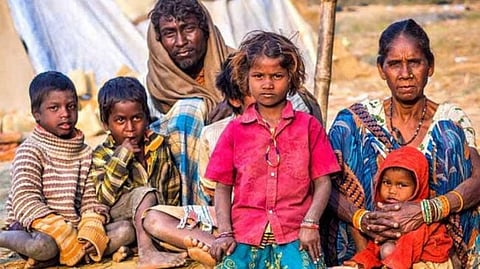
- Home
- Live Blog
- Breaking News
- Top Headlines
- Cities
- NE News
- Sentinel Media
- Sports
- Education
- Jobs

New Delhi: India has made some progress in reducing child malnutrition, but a lot needs to be done, according to the first Comprehensive National Nutrition Survey (CNNS) survey, released recently. Government schemes have been able to prevent Vitamin A and iodine deficiency among children aged 1-4 years.
But, according to UNICEF, rising childhood obesity is adding to the growing threat of non-communicable diseases, like diabetes, among school-aged children and adolescents.
The Ministry of Health and Family Welfare released the result of the CNNS, conducted during 2016-18 in 30 states/Union Territories with technical support of the UNICEF.
It’s one of the largest micronutrient surveys conducted across the globe covering anthropometric assessments of 1,12,000 children aged 0-19 years. It also included over 51,000 biological samples on children’s micronutrient status and risk factors for non-communicable diseases.
Yasmin Ali Haque, UNICEF India Country Representative, said, “The CNNS is an amazing wealth of information. It’s time for evidence-driven policy and action to save children and help them fulfil their potentials”. The Poshan Abhiyaan 2018-22 has set goals to reduce child under-nutrition (stunting and underweight) and low birth weight by 2 per cent a year, and anaemia across age groups by 3 per cent, and create a mass movement for good nutrition in the country.
The CNNS figures reveal that school-age children and adolescents are still at risk of malnutrition and a lot of ground still needs to be covered.
According to the UNICEF, the high number of anaemic children, adolescents and women remain a concern for India. (IANS)